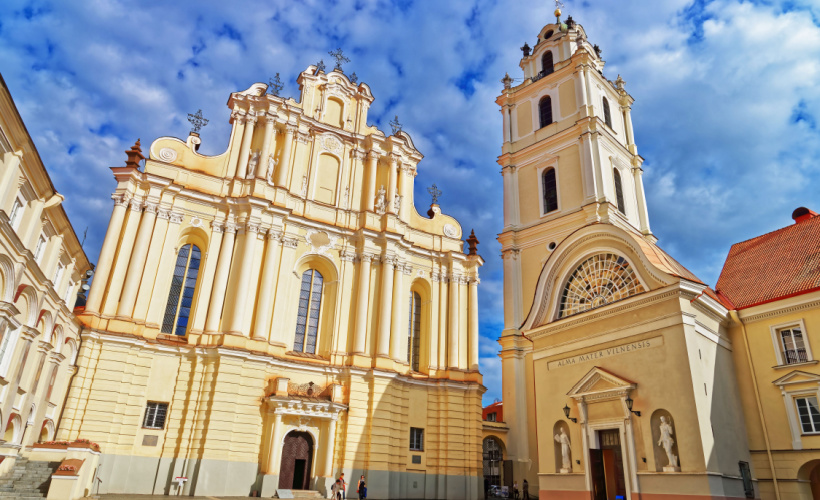It is well-known that German history unfolded not only in a national and European context but also had a significant global dimension. Modern Germany was shaped by the peculiarities of the Germans, to be sure but it also emerged out of the interplay of worldwide events and processes such as war, migration, economic growth, international trade and cultural transfer, to name but a few. With this in mind, the Centre for Geopolitics and the DAAD Cambridge Research Hub for German Studies have convened a panel of authors of recent works on twentieth and twenty-first-century Germany to look at whether any patterns have emerged and how they might be suggestive of the future.
His Exc. Mr Miguel Berger:
His Exc. Mr Miguel Berger has been serving as the German Ambassador to London since May 2022, bringing with him a wealth of experience from his distinguished career in diplomacy and governmental affairs. Before his current appointment, Berger held the position of State Secretary at the Federal Foreign Office from May 2020 to January 2022. In this role, he oversaw two political departments and was responsible for shaping Germany’s European, Asian, and Pacific policy initiatives, in addition to serving as the crisis officer. He has been a frequent panellist at the Centre for Geopolitics and we are delighted to welcome him back to Cambridge.
David Blackbourn:
David Blackbourn is Cornelius Vanderbilt Distinguished Chair and Professor of History Emeritus at Vanderbilt University. He taught for twenty years at Harvard, and before that at London University. Blackbourn was educated at Cambridge, where he was also a research fellow. His books include Class, Religion and Local Politics in Wilhelmine Germany, The Peculiarities of German History (with Geoff Eley), The Long Nineteenth Century: A History of Germany, 1780-1914, The Conquest of Nature (winner of three book prizes), and Germany in the World: A Global History, 1500-2000, which appeared last year and will be published in German, Russian and Chinese translations.
Katya Hoyer:
Katja Hoyer is a German-British historian. She is a Visiting Research Fellow at King’s College London and a Fellow of the Royal Historical Society. Her bestselling books Blood and Iron: The Rise and Fall of the German Empire, 1871-1918 and Beyond the Wall: East Germany, 1949-1990 have been translated into over a dozen languages. Katja is a columnist for the Washington Post and the Berliner Zeitung. She also writes about Germany for British newspapers such as The Spectator, The Daily Telegraph and The Guardian. Katja hosts the podcast The New Germany for the Körber-Stiftung and writes a biweekly blog called ZEITGEIST. She was born in Germany and now lives in the UK.
Professor Manfred Görtemaker:
Manfred Görtemaker earned his Ph.D. in 1977 focusing on East-West relations and détente policy, subsequently enhancing his academic credentials as a John F. Kennedy Memorial Fellow at Harvard and as a visiting assistant professor at Stanford. From 1992 he was a professor of modern history at the University of Potsdam, also serving as Vice-Rector and Chairman of the Senate until his retirement. His notable work includes a 2016 report on post-war National Socialist influences in Germany’s Justice Ministry, for which he received the Gold Cross of Honour, and a much-praised biography of Rudolf Hess.
Professor Frank Trentmann:
Frank Trentmann is Professor of History at Birkbeck, University of London, and at the University of Helsinki. His most recent book is Out of the Darkness: The Germans, 1942-2022 (2023) which was chosen as the number one political book of the year by the Süddeutsche Zeitung and has been a book of the year in the Telegraph, Der Spiegel and The New Yorker. Previous works include Empire of Things and Free Trade Nation. He has been awarded the Whitfield Prize, a Moore Distinguished Fellowship at Caltech, the Austrian Science Book Prize, the Humboldt Prize for Research, and in 2023 the Bochum Historians’ Prize.
Professor Brendan Simms (chair):
Brendan Simms is the founder and Director of the Centre for Geopolitics. He works on European geopolitics, past and present, and his principal interests are the German Question, Britain and Europe, Hitler’s global anti-semitism, Humanitarian Intervention and state construction.







